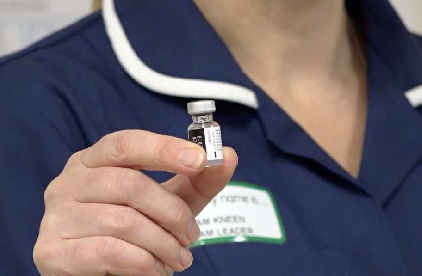
A third coronavirus jab is set to be offered from September after the NHS was given the go-ahead to plan for a vaccine booster programme ahead of a busy winter.
Extra protection against Covid will likely be needed as a bigger flu season than normal is expected with experts advising that the most vulnerable should receive a third vaccine dose.
This is set to include all adults aged 50 and over as well as anyone who is aged over 16 and qualifies for a flu jab.
NHS bosses have previously they would need a lot of warning for an autumn Covid-19 booster rollout so it could plan the third jabs at the same it was organising to vaccinate millions of people against the flu.
The Joint Committee on Vaccination and Immunisation’s advice is to offer a third Covid jab – as well as a flu jab – to adults aged 70 and over, vulnerable residents in care homes, frontline health and social care workers and those aged over 16 who are immunosuppressed – which means they have a reduced ability to fight infections and other diseases.
Once those people have received a third jab, the booster vaccine will be offered to adults aged 50 and over, those aged between 16 and 49 who are in a flu or Covid at-risk group and those living in the same house as people who are immunosuppressed.
Dr Jason Seewoodhary, GP at Barbourne Medical Centre in Worcester said: “Millions of people will be offered a Covid-19 booster vaccination from September in order to prolong the protection that vaccines provide in those who are most vulnerable to Covid-19 infection ahead of the winter months.
“The vaccines are thought to protect most people against serious illness from Covid-19 for at least six months, but a lack of data on exactly how long immunity lasts is prompting a safety-first approach.
“It is estimated that approximately 30 million people will be offered Covid-19 booster vaccines alongside flu jabs from September.”
Covid vaccines are believed to protect most people against serious illness for at least six months but the lack of data on exactly how long immunity lasts has prompted a safety-first approach.
A decision on which vaccine will be used has not yet been made.


 Investigation launched after two deaths in Redditch
Investigation launched after two deaths in Redditch

